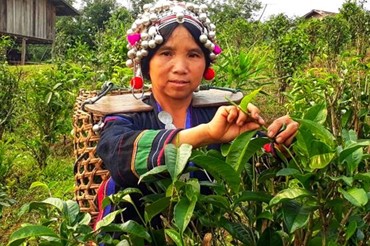“When there is no conflict, I am less stressed …”

Under TABI, P-FALUPAM is an iterative approach for land use planning at the village and village cluster level. It is a set of tools that provides government agencies, donor partners and NGOs the ability to carry out integrated resource planning and monitoring of forests and agricultural lands in an inclusive way, by engaging and working together with local authorities and villagers. Photo: TABI



